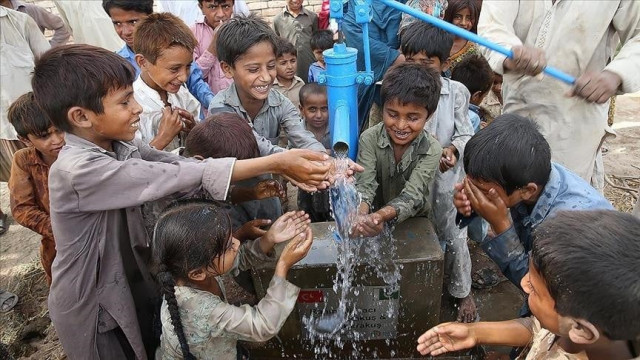Water scarcity to haunt Punjab soon
Depleting resources, wastage, and overpopulation a burden on the irrigation supply

With less than 25 years of underground water reserves, Pakistan could soon find itself on the brink of a crisis that will leave its second largest province high and dry.
Despite receiving a significant supply from dams, rivers, and other sources, Punjab is experiencing severe water scarcity.
The shortage of water, experts cautioned, is a major challenge for the province that accounts for much of the nation’s agriculture, a mainstay of the national economy.
Due to the shortage of canal water, Punjab is also using groundwater for irrigation through tube wells. However, the icing on the cake is that most of the available water is wasted before it even reaches the fields.
As a result, not only are groundwater reserves rapidly depleting, but water quality is also deteriorating.
According to Malik Mohammad Akram, Director General of the Water Management Department, at the time of establishment of Pakistan, 5,600 units of water share were available for an individual which has come down to only 800 units today.
Akram cautioned that Pakistan’s available underground water reserves will last 25 years. “Understand that citizens over the age of 50 have used their share of water and now we are using the water share of our children and future generations,” he revealed.
Aamer Hayat Bhandara, a progressive farmer and agriculture expert, talking to The Express Tribune, seconded Akram’s facts stating: “Pakistan’s freshwater withdrawals as a proportion of freshwater resources are at 102.5%. Due to excessive [water] pumping, it is estimated that water tables could fall by as much as 20% by 2025.”
Read Each Pindi UC to have water filtration plant
Measures taken In a bid to curb the wastage of this precious resource, the provincial authority on water management, which is part of the Department of Agriculture, is taking steps like constructing brick-paved watercourses, installing drip and sprinkler irrigation systems, making small manmade water ponds, leveling land using a laser unit, and moisturizer checking devices.
Lamenting on Pakistan’s Mughalera inherited irrigation system, the director general said: “The existing system was introduced in Pakistan and India during the rule of Emperor Akbar. The landlord who had ten acres at that time used to get water for five and five and half acres and the same distribution has been carried forward.”
This prehistoric irrigation system gave birth to the use of groundwater to meet the canal water shortage.
At the time of establishment of Pakistan, there were 10,000 tube wells in Punjab but today their number has crossed 1.2 million.
So far, the director general said, 50,000 watercourses have been improved in Punjab to save water. According to Akram, 11 million acrefeet of water is lost due to raw water courses and 21 million acre-feet of water is lost due to uneven soils.
“Paving a bricked watercourse saves about 229 acres of water annually,” claimed Akram. Bhandara, however, cautioned that the need to use water productively and efficiently was as important as saving water.
“Our productivity using water [in farming] is less as compared to the developed countries as they rely on food supply chain data and other research to use water more efficiently.”
Apart from bricked watercourses, precision land leveling using a laser land level unit has been identified as the most appropriate solution to redress water scarcity and to enhance water productivity at farm level.
The Punjab Chief Minister is determined to install one in each of the more than 25,000 villages in Punjab. So far, these units have been provided in 14,000 villages while the rest are in process.
“There is also a need, apart from agricultural innovations, to standardize the agriculture engineering department and make a coalition of agriengineering, water management, and extension departments for better water governance,” Bhandara told the Express Tribune.



















COMMENTS
Comments are moderated and generally will be posted if they are on-topic and not abusive.
For more information, please see our Comments FAQ